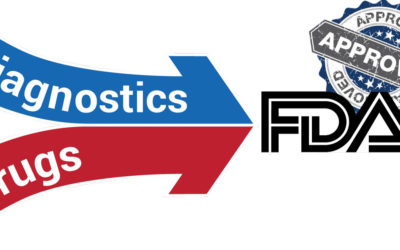https://www.hopkinsmedicine.org/news/newsroom/news-releases/novel-ai-blood-test-detects-liver-cancer
A research team led by Johns Hopkins Kimmel Cancer Center developed a circulating cell-free DNA (cfDNA) “fragmentome” and machine learning approach to boost hepatocellular carcinoma (HCC) detection. They believe that this strategy may help in monitoring individuals with viral hepatitis, cirrhosis, non-alcoholic fatty liver disease (NAFLD), and other conditions.
Researchers used low-coverage whole genome sequencing to profile cfDNA fragment features in blood samples from individuals with HCC, healthy control individuals, and individuals with other liver conditions. They then used DELFI (DNA evaluation of fragments for early interception), an artificial intelligence approach, to identify which cfDNA fragmentome features corresponded to HCC. The same approach had previously been used by these researchers to identify a lung cancer classifier and has received Breakthrough Device Designation from FDA.
To train and validate their model, the investigators studied over 500 blood plasma samples from individuals in the US and Europe while also bringing in available chromatin immunoprecipitation sequencing data on liver cancer transcription factor binding patterns. This allowed researchers to flag DNA fragmentome features that were distinct in plasma samples from 75 HCC patients compared to those from 133 high-risk participants with other liver conditions or from healthy control individuals. Using this approach, the team identified genome, chromatin, and transcription factor binding site shifts that marked DNA fragmentomes found in non-cancer plasma samples. While HCC-related fragmentomes were more diverse, they were able to put together a classifier score with DELFI to distinguish HCC cases. Researchers subsequently validated their model using additional blood plasma samples from 223 individuals in Hong Kong and included samples from individuals with HCC, liver diseases and with no underlying risk factors.
The team concluded that DELFI scores were significantly higher for individuals with HCC, regardless of tumor stage, while individuals with hepatitis or cirrhosis showed intermediate scores, and individuals without HCC, hepatitis, or cirrhosis had low DELFI scores. The DELFI score could detect HCC with a sensitivity of 88% and a specificity of 98% in a group of individuals who appeared to be at average risk of HCC, while the sensitivity was 85% with a specificity of 80% in the high-risk group.
While additional studies are needed to validate these findings, researchers are hopeful that this technology may open the doors to screening high-risk and general populations for liver cancer.
Goldbug will continue to monitor for updates around this technology and other similar initiatives.


